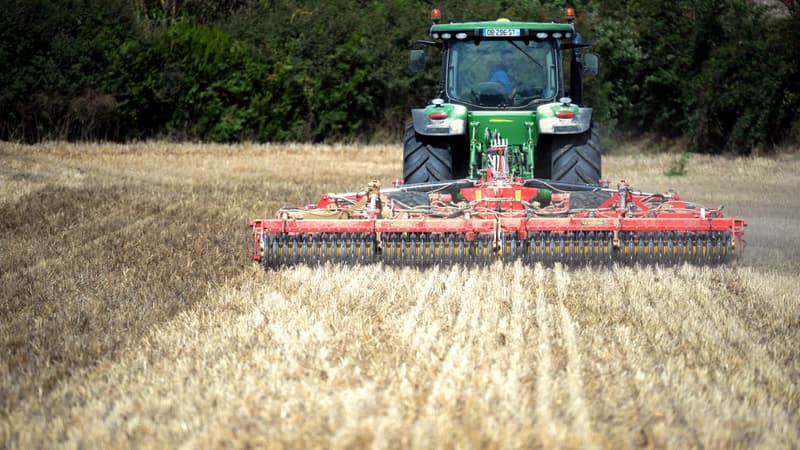There is no doubt: France remains a great agricultural power. In 2022, its agri-food trade surplus reached €10.3 billion, its highest level since 2013. It is also by far the largest European producer. There is a shadow, however, that of its decline. A divisive issue.
Many more imported products on our plates
“French agriculture is falling apart,” lamented Christiane Lambert, a pig farmer and president of the National Federation of Farmers’ Unions, on the eve of the opening of the International Agricultural Show.
And indeed, a late 2022 Senate report worries about trends not going in the right direction.
The trade surplus, which recovered last year, is still, despite everything, less important than in the early 2010s. On the import side, the observation seems even more scathing: they have doubled since the year 2000, alarm reporters. One in two chickens we eat is not French, while 71% of the fruit we eat is of foreign origin. Same observation for vegetables (28%) and lamb (56%).
Two decades ago we were the second world exporter of agricultural products, now we are the fifth or sixth. What happened ?
The Senate report highlights the decline in the number of farms in France -although it must be qualified with an increase in productivity- and above all the competitive shortcomings due, among other things, to high labor costs and lack of investment.
If the report’s authors are to be believed, who note that our “productive potential is eroding year by year,” the decline is clear and alarming.
Fruit or milk: it all depends on what you put on your plate
In addition, excluding wine exports, France would go from a trade surplus of more than 10,000 million euros to a deficit balance, the speakers underline.
If you corroborate the figures presented in the report, you do not share the conclusions about the worrying erosion of our agricultural capacities.
He points out that while France is dependent on abroad for certain products, such as vegetables and fruit – a problem that dates back to the 1970s, he says – as well as oils and soybeans, to name just a few, it is in the other hand, largely self-sufficient in others such as common wheat, barley, sugar or dairy products.
According to him, “our main difficulty now is the European Union.”
For more than a decade, competition has increased in the EU to the detriment of French products, which are more expensive than those sold by our neighbors, such as Germany and the Netherlands. As a result, France has posted consistent deficits in its intra-European food trade since 2015. Losses that, however, are largely offset by our trade with non-EU countries, says Thierry Pouch.
A strength for some but that can become a defect according to the report that criticizes the government’s strategy of “all luxury” that it describes as “inadequate” in the face of the fall in purchasing power.
Power or the planet?
For Charles Pernin, general delegate of Synabio, the union of biofood companies, the question is not to be or maintain the status of a great agricultural power but to preserve the planet and the health of consumers.
Organic produce has taken up more and more space on our plates over the years despite a slowdown in recent years. Organic farming has a lower yield than conventional agriculture, something criticized by some advocates of food sovereignty and more intensive agriculture.
“By opting for forms of production that are much less intensive than conventional agriculture, we can feed the entire population”, underlines Charles Pernin. Two conditions would be necessary for this: to put an end to waste – which amounts to 30% of what is produced – and to reduce the share of products from livestock on our plates.
A healthy planet or a full plate? If Synabio wants to reconcile the two, Thierry Pouch affirms the primacy of one over the other: “food continues to be a priority for the security of peoples.”
Source: BFM TV


